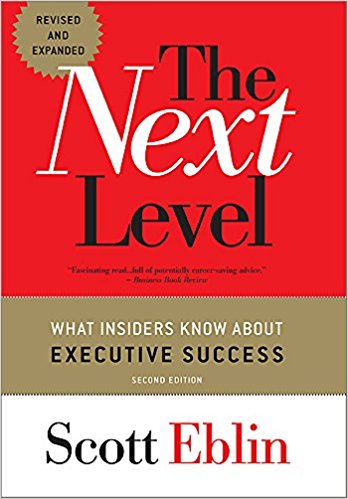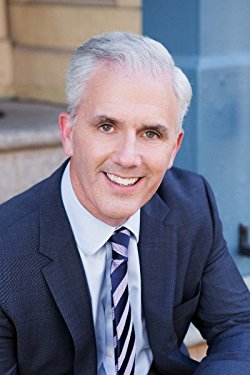The Next Level Summary

3 min read ⌚
 What Insiders Know About Executive Success
What Insiders Know About Executive Success
The influence of executives is off the question. The magnitude of their decision-making is felt on all organizational layers.
“The Next Level” pinpoints what an average executive must do to keep its authority and stabilize its position.
About Scott Eblin
 Scott Eblin is a management and leadership expert who operates with Fortune 500 companies.
Scott Eblin is a management and leadership expert who operates with Fortune 500 companies.
“The Next Level Summary”
What managers despise the most? After receiving a promotion, they are rarely informed about their new responsibilities. Absent guidance, the leader and those beneath him/her will struggle to cope with the obstacles. Abandoned by the superiors, these managers tend to make quick decisions, often making big mistakes.
Rise to success is linked with the ability to compromise, learn from past experience, neglect old habits, and adopt new ones – suitable for the environment. To develop “executive presence” you must meet several criteria.
-
- “Personal presence” – Self-confidence must be matched with the right amount of energy and motivational skills.
-
- “Team presence” – Stimulating group cohesion, praising the team not the person!
- “Organizational presence” – Don’t become arrogant, ask your peers for advice, see the picture from all angles before you make a call.
Becoming an executive after being promoted is a one-way-ticket that unveils a one-of-a-kind opportunity to climb the corporate ladder. As a form of gratitude, you must do the honors of cutting the “invisible chains” that are hindering the company’s progress.
Receive this award but repay it with the flexibility to adapt to various situations. Your attitude is complementary to your work and productivity. You have every right to design your own routine and adjust it to everyone’s capabilities. In truth, we all become what we repeatedly do.
There are two types of executives: “Work hard” and “Work smart”. Don’t be one of those who believe that sprinting towards the finish line is the only way. You can also take the attitude of a turtle, slow pace but no rest. The to-do-list along with your schedule must fit the idea you have about successfully finishing a task. Getting the big picture relies on how well your managing skills are, and your vision.
Your words can make all the difference, for the better or worse.
In all honesty, an executive who’s not open-minded and creative will stumble and fall before the finish line. The questions below will take the burden off your shoulders if utilized correctly.
-
- “What” – Which information is critical for the company, and how it will be delivered (format)?
-
- “So what?” – Why is this information so valuable?
- “Now what?” – Understand your position by asking – What is expected of you?
Key Lessons from “The Next Level”
1. You against them
2. Egoless mentality and broad perspective
3. Micromanagement and delegating starts with you
You against them
In a healthy environment, there is no “me.” Executives are aware of the troubles arising from emphasizing individual efforts.
Real leaders focus on team actions and refuse to admit any individual responsibility for neither success nor failure.
Egoless mentality and broad perspective
More than 80% of all failures in corporate project occur due to arrogance. Failing to establish a strong bond with your peers puts you in an awkward position.
Don’t be encouraged to stimulate such mindset and change your behavior.
Micromanagement and delegating starts with you
Define all tasks and wisely divide the workload with your subordinates. Give them enough room to complain and ask for changes.
Try to choose the jobs that are fitting and be open to modifications.
Like this summary? We’d Like to invite you to download our free 12 min app, for more amazing summaries and audiobooks.
“The Next Level” Quotes
Identify the key tactical behaviors that, if regularly repeated, will lead to a transformation in the level of confidence you project with your fellow executives and in the organization as a whole. Share on XMost of us know we're operating at our best when we feel comfortable, engaged and effective. Share on X
At the executive level, you are playing on a bigger and broader field, but with less information and control than you had as a functional leader. Share on X Reframe your definition of what your daily contribution to the result should be: It should be about influencing others to create the result, not creating the result yourself. Share on X Executives don't spend much of their time producing anything tangible. They produce and deal in ideas. Share on X







